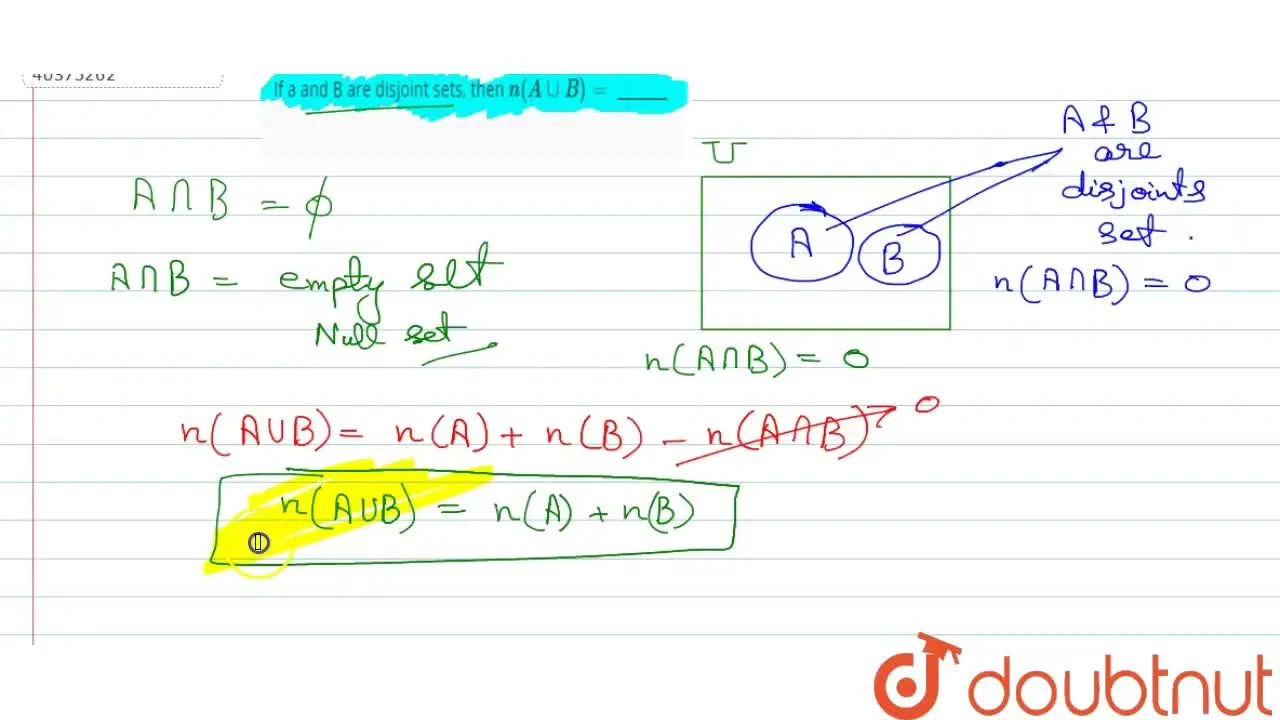If a and B are disjoint sets, then n(A∪B)= _______
Video Solution
Text Solution
The correct Answer is:n(A)+n(B)
Since A and B are disjoint sets, A∩B=ϕ
n(A∩B)=0
n(A∪B)=n(A)+n(B)−n(A∩B)
n(A∪B)=n(A)+n(B)
|
Updated on:21/07/2023
Related Playlists
- BOOK - PEARSON IIT JEE FOUNDATIONCHAPTER - SETSEXERCISE - SHORT ANSWER TYPE12videos
SETS
- BOOK - PEARSON IIT JEE FOUNDATIONCHAPTER - SETSEXERCISE - CONCEPT APPLICATION5videos
SETS
- BOOK - PEARSON IIT JEE FOUNDATIONCHAPTER - SETSEXERCISE - Crossword1videos
SETS
- BOOK - PEARSON IIT JEE FOUNDATIONCHAPTER - RATIO AND PROPORTION EXERCISE - Crossword1videos
RATIO AND PROPORTION
- BOOK - PEARSON IIT JEE FOUNDATIONCHAPTER - STATISTICSEXERCISE - ASSESSMENT TEST10videos
STATISTICS
Similar Questions
If A and B are disjoint sets, then n(A∩B)=?
View SolutionIf A and B are disjoint sets, then draw their venn diagram
View SolutionIf A and B are disjoint sets, then n(A∩B)=?
View SolutionIf A and B are disjoint sets, then write A∩B
View SolutionIf A and B are disjoint sets, then A∩(A'∪B) is equal to which one of the following?
View SolutionIf A and B are disjoint sets, then n(∧ΔB)=____.
View SolutionIf A and B are two disjoint sets, then n (A U B) is equal to
View SolutionIf A and B are two disjoint sets, then n(A∪B) is equal to n(A)+n(B) b. n(A)+n(B)−n(A∩B) c. n(A)+n(B)+n(A∩B) d. n(A)n(B)
View SolutionIf A and B are disjoint sets, then A∩(A'∪B) is equal to which one of the following?
View SolutionIf n(A)=5,n(B)=3and the set of A and B are disjoint, then find n(A∪B).
View Solution


